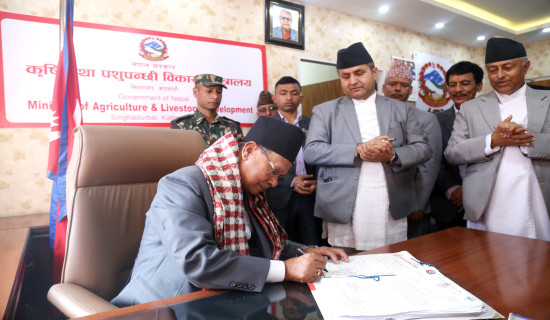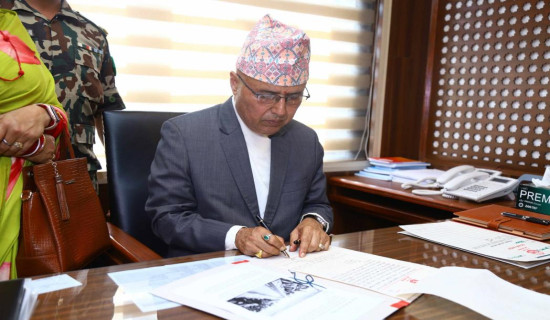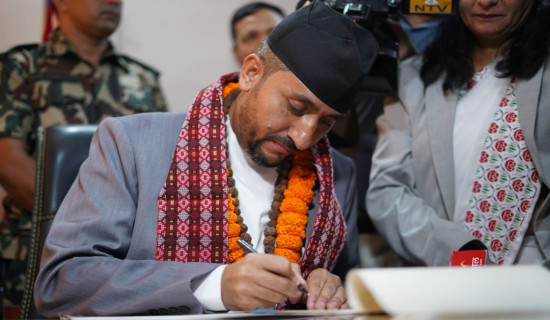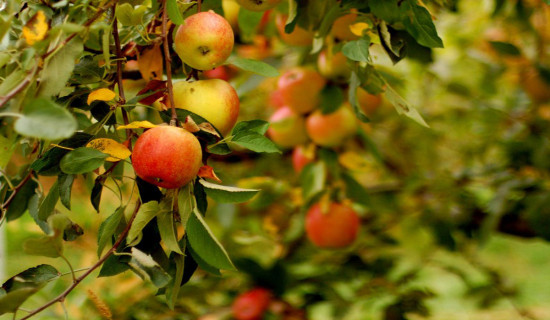- Tuesday, 23 September 2025
Observation Of Birth Ceremony In Nepal And China
Piyush Shrestha
The birth ceremony is taken as an important cultural activity performed all over the world; the only difference is the way of celebration. Religion, geography, caste, ethnicity, race and culture influence the belief and the way of celebrating this ceremony. Birth is the first step of life.
The birth ceremony is one of the important traditional life etiquettes in China and Nepal. Hence, this article tries to analyze the difference and similarities of the birth ceremony as traditional life etiquette in China and Nepal.
Pre-Natal Birth Rituals
The pre-natal birth rituals are highly focused on the unborn child and pregnant mother. Mothers are expected to have nutritious food and are not allowed to engage in heavy work like carrying heavy loads or taking a burden which is believed to hamper the baby inside the womb.
In China from the birth of the baby, the mother and child are kept under complete observation with facilities. Mother is given nutritious foods so that child would be fed properly. A dish of braised pig's trotters with ginger and vinegar is given which would help the mother to recover and get warm after giving birth. This period in Chinese is known as Zuo Yue.
Making offerings to ancestors and deities is also seen in this period. The 30th-day celebration is called the full moon which means since from birth the completion of the first month of the child. It is also known as man Yue.
On this day Chinese people hold a feast to which all the relatives are invited. The host family gives red-painted boiled eggs to the relatives in exchange for gifts which symbolises good luck. The size and shape of the egg are also associated with harmony and unity. Chinese believe that it is the beginning of a Child's life in the community. On this day mothers are allowed to take their first bath and wash their hair after giving birth.

The hair-shaving ritual of the baby is also performed on this day. For the first time on this day, the baby is shown to the relatives. On the third day after born, the naming ceremony is performed in which the child is given a name. Newborn babies are also fed with noodles first time in this ritual because there is the belief that babies' life would be as long as noodles.
Usually, relatives use red packets or envelopes for gifts because it symbolises good wishes and luck in the coming days. From birth to the 100th day time period Chinese has its importance. The completion of 100 days of a baby is celebrated by wishing for 100 years of life and longevity of the baby.
Prayers and food will be offered to the ancestors together with the burning of incense to wish the baby good health and protection from bad spirits. Some families will shave the baby's head, while some have already replaced the ritual with cutting a hair lock.
In Nepal, a baby shower is celebrated, also known as Dahi Chiura is a special ritual in which Dahi (youghurt) Chiura (flattened rice) are fed in the sixth or seventh month of pregnancy with Gifts and blessings from the elders.
Dahi and Chiura are the major dishes in this day because they have nutritious values. Dahi and Chiura are very easy to digest and it also helps to strengthen bones and immunity.
Pregnant women are invited to their relatives and offered delicious and healthy food to eat which is beneficial for the mother and unborn baby. Chaithi is celebrated on the sixth day after the child is born. Relatives gather together to celebrate this ceremony.
On this day pen and paper are put under the child's pillow so that god come and writes her/his fortune. On the 11th day after the baby is born, Nwaran is celebrated in Nepal which is also known as the naming ceremony.
A priest visits the home to give the child a name according to the baby’s birth details and corresponding horoscope. Hence, Nepali children usually have two names: horoscope name and given name.
The weaning ceremony known as Pasni in Nepal is celebrated within 5 months for girls and 6 months for boys after birth. It is also known as the rice feeding ceremony where the child is fed first-time rice and different traditional foods.
On this day all the relatives gather together and celebrate by exchanging gifts and blessings. Rice is a regular and important food in Nepal. By feeding rice; it is assumed that child is entering the social life with its regular food.
Differences
There are certain differences we can find during the birth celebration in China and Nepal. The cultural belief and traditional practises take importance in China regarding birth ceremonies, whereas Hindu religion is dominant in the practice of birth rituals in Nepal. Particularly in China, we could see common practices for boys and girls where as we could see some practices in Nepal under gender differences like weaning ceremonies for boys and girls.
Usually, the first hair-shaving ritual is conducted on the 30th day since the baby was born in China whereas in Nepal this ritual takes place on the odd number of years for boys and for girls it is the even number year.
For the weaning ritual, in China, noodles are the first food for the child to feed because in China there is the belief that a baby's life also gets long as noodles mean noodles symbolised for the longevity of the baby.
In China, there is the perception that mothers like to take rest during pregnancy, but it is neglected in Nepali tradition where pregnant women work too hard. Another difference we can see is the naming day. In China, the name of the child is given on the third day of birth whereas, in Nepal, this ritual takes place on the 11th day of the birth.
As the similarities regarding the birth ritual in China and Nepal, this ritual is the first ritual for humans which has its importance in both countries. Both countries celebrate this ritual for communal harmonies in the society where all the relatives gather together.
Sharing gifts is a common custom seen in both countries. Although the celebration days are different traditions like naming, weaning etc. ceremonies are important in both nations.
This custom had been transferred from the ancestors and had been practised since the beginning and still, it has greater importance in both of the countries.
China and Nepal are close neighbouring countries sharing their culture and traditions.
We could see different languages and customs in these two countries, but both of these two civilizations seem to be keen on following their ancestors, protecting humanity, respecting mothers and socialisation of the child.
(Shrestha is a research fellow at the Institute of Hermeneutics, Guangdong University of Foreign Studies)
How did you feel after reading this news?




-square-thumb.jpg)







-original-thumb.jpg)

-original-thumb.jpg)
